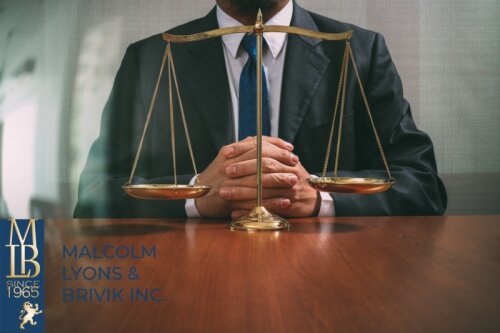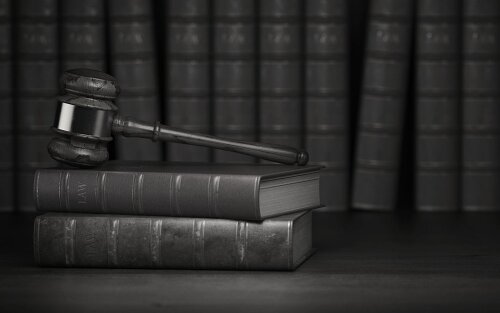Best Whistleblower & Qui Tam Lawyers in Cape Town
Share your needs with us, get contacted by law firms.
Free. Takes 2 min.
List of the best lawyers in Cape Town, South Africa
About Whistleblower & Qui Tam Law in Cape Town, South Africa:
Whistleblower & Qui Tam laws in Cape Town, South Africa are designed to protect individuals who report illegal activities, fraud, or any wrongdoing within an organization. These laws provide legal avenues for whistleblowers to come forward without fear of retaliation and offer financial incentives for those who expose fraudulent activities.
Why You May Need a Lawyer:
You may need a lawyer in Whistleblower & Qui Tam cases if you have evidence of fraud, misconduct, or illegal activities within your workplace or organization. A lawyer can help you navigate the legal process, protect your rights as a whistleblower, and ensure that you receive the proper legal protections and financial rewards under the law.
Local Laws Overview:
In Cape Town, South Africa, the Protected Disclosures Act of 2000 provides legal protections for whistleblowers who report illegal activities in the workplace. This law prohibits retaliation against whistleblowers and allows for compensation for those who suffer harm as a result of their disclosures. Additionally, the Prevention and Combating of Corrupt Activities Act of 2004 addresses corruption and provides mechanisms for reporting corrupt practices.
Frequently Asked Questions:
1. Can I remain anonymous when reporting wrongdoing as a whistleblower?
Yes, the Protected Disclosures Act allows whistleblowers to remain anonymous when reporting illegal activities, fraud, or misconduct within an organization.
2. What kind of financial rewards can whistleblowers receive in Cape Town, South Africa?
Whistleblowers may be entitled to a percentage of any recovered funds or penalties resulting from their disclosure of illegal activities.
3. What protections do whistleblowers have against retaliation from their employers?
The law prohibits employers from retaliating against whistleblowers for making protected disclosures. Whistleblowers who experience retaliation can seek legal remedies.
4. How should I gather evidence before blowing the whistle?
Consult with a lawyer to ensure that you gather evidence ethically and legally. Your lawyer can guide you on the best ways to document and preserve evidence of illegal activities.
5. Are there specific deadlines for reporting wrongdoing as a whistleblower?
While there are no specific deadlines for reporting wrongdoing, it is advisable to report as soon as possible to maximize legal protections and potential rewards.
6. Can I report wrongdoing to more than one organization or authority?
Yes, whistleblowers can report wrongdoing to multiple organizations or authorities, including law enforcement agencies, regulatory bodies, and internal compliance departments.
7. What is the difference between whistleblowing and Qui Tam actions?
Whistleblowing involves reporting illegal activities or misconduct within an organization, while Qui Tam actions typically involve filing a lawsuit on behalf of the government to recover funds lost to fraud or corruption.
8. Do I need concrete evidence before blowing the whistle?
While having evidence can strengthen your case, whistleblowers are protected even if their disclosures lead to the discovery of misconduct or illegal activities.
9. How can a lawyer help me as a whistleblower?
A lawyer can help you understand your rights as a whistleblower, guide you through the legal process, protect you from retaliation, and ensure that you receive any financial rewards you may be entitled to.
10. Can I be held liable for making a false report as a whistleblower?
If you make a false report with malicious intent, you may be subject to legal consequences. It is important to provide truthful information when reporting wrongdoing.
Additional Resources:
If you require legal advice on Whistleblower & Qui Tam matters in Cape Town, South Africa, you can contact the Legal Aid South Africa for assistance. Additionally, you may reach out to the South African Human Rights Commission for guidance on whistleblowing and protection of rights.
Next Steps:
If you believe you have evidence of fraud, corruption, or illegal activities and are considering blowing the whistle, it is essential to seek legal advice. Contact a qualified lawyer who specializes in Whistleblower & Qui Tam laws to discuss your case and explore your legal options. Remember, whistleblowers play a vital role in uncovering wrongdoing and promoting accountability in organizations.
Lawzana helps you find the best lawyers and law firms in Cape Town through a curated and pre-screened list of qualified legal professionals. Our platform offers rankings and detailed profiles of attorneys and law firms, allowing you to compare based on practice areas, including Whistleblower & Qui Tam, experience, and client feedback.
Each profile includes a description of the firm's areas of practice, client reviews, team members and partners, year of establishment, spoken languages, office locations, contact information, social media presence, and any published articles or resources. Most firms on our platform speak English and are experienced in both local and international legal matters.
Get a quote from top-rated law firms in Cape Town, South Africa — quickly, securely, and without unnecessary hassle.
Disclaimer:
The information provided on this page is for general informational purposes only and does not constitute legal advice. While we strive to ensure the accuracy and relevance of the content, legal information may change over time, and interpretations of the law can vary. You should always consult with a qualified legal professional for advice specific to your situation.
We disclaim all liability for actions taken or not taken based on the content of this page. If you believe any information is incorrect or outdated, please contact us, and we will review and update it where appropriate.
















